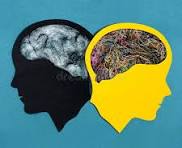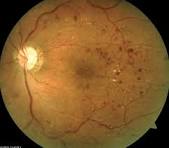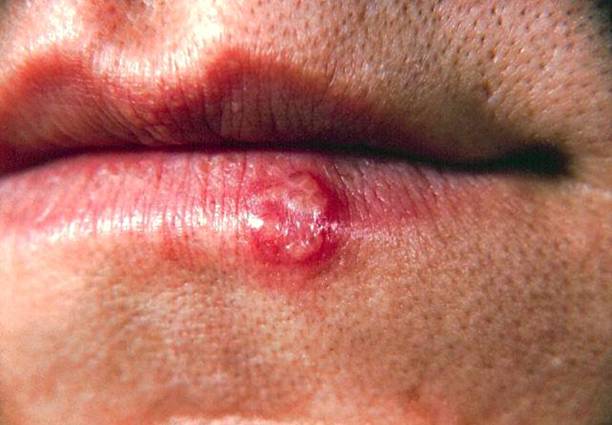INTRODUCTION:
HEALTH IS WEALTH-There is no substitute for healthy life; its the cornerstone
behind all accomplishment in life. Without which, a man is reduced to piece of bread.
One sickness can destroy a man’s lifetime saving of financial fortune,
leaving the individual and family in distress. While modern
medicine has made remarkable strides in diagnosing and treating diseases, many
health conditions continue to defy medical solutions, pushing us to explore
alternative approaches.
Natural remedies have been a cornerstone of healing for centuries, long before
the advent of modern pharmaceuticals. Across cultures and civilizations, people
have relied on nature’s gifts—herbs, roots, fruits, and holistic practices—to
restore health and vitality.
Natural Remedies for Bipolar Disorder
Bipolar disorder is a chronic mental health condition characterized by
alternating episodes of mania (or hypomania) and depression. These
mood swings can affect a person’s energy levels, behavior, judgment,
and ability to function in daily life. Although medical treatment,
including mood stabilizers, antipsychotic medications, and
psychotherapy, is essential for managing the disorder, some natural and
lifestyle-based interventions may complement conventional care.
These approaches do not serve as substitutes for professional treatment,
but when used under medical supervision, they may enhance emotional
stability and overall quality of life.
1. Stress Management
Stress is a well-documented trigger for both manic and depressive
episodes in people with bipolar disorder.
How it works: Techniques such as mindfulness meditation, yoga,
deep breathing exercises, and guided imagery help regulate the
body’s stress response and improve emotional resilience.
Description: These practices should be integrated into daily
routines. Classes and guided resources are often available in
community centers, mental health clinics, or wellness outlets.
2. Regular Sleep Patterns
Disruptions in sleep are closely associated with mood episodes in
bipolar disorder.
How it works: Stabilizing sleep-wake cycles helps prevent both
depressive and manic episodes by supporting circadian rhythm
regulation.
Description: Go to bed and wake up at the same time daily. Avoid
stimulants, heavy meals, or screens before bedtime.
3. Healthy Diet
Nutritional psychiatry research supports a strong link between
diet and mental health.
How it works: Diets rich in complex carbohydrates, lean proteins,
vegetables, and omega-3 fatty acids promote neurological health
and mood regulation.
Description: Avoid processed foods, excessive sugar, and
caffeine. A registered dietitian can offer a tailored plan for
optimal brain and gut health.
4. Regular Exercise
Physical activity is a powerful non-pharmacological method for
mood enhancement.
How it works: Exercise increases endorphin levels, supports
better sleep, and helps regulate energy imbalances during
depressive phases.
Description: Engage in aerobic activities like walking, cycling,
or swimming for at least 30 minutes, five days a week.
5. Supportive Relationships
Social support serves as a protective buffer against emotional
dysregulation.
How it works: Positive interpersonal relationships can reduce the
sense of isolation and provide emotional feedback during early
warning signs of relapse.
Description: Build open communication with trusted family
members or friends. Consider peer support or group therapy
facilitated by professionals.
6. Mindfulness-Based Cognitive Therapy (MBCT)
MBCT has shown efficacy in mood disorder management,
particularly in preventing depressive relapse.
How it works: Combines mindfulness meditation with cognitive-
behavioral techniques to build awareness of thought patterns and
emotional triggers.
Description: Participating in MBCT programs, often available in
psychotherapy clinics or mental health centers, can be valuable,
particularly for those prone to depressive cycles.
7. Herbal Supplements
Some herbal products have shown limited evidence of mood-
stabilizing potential, though they should be used cautiously.
How it works: Supplements like omega-3 fatty acids (from fish
oil) have demonstrated some benefit in mood disorders. St. John’s
Wort is sometimes used for mild depression but can interfere with
psychiatric medications.
Usage: Only under supervision of a psychiatrist or licensed
integrative medicine specialist, as drug interactions are common.
8. Lifestyle Routine
Daily structure is critical in regulating mood for individuals with
bipolar disorder.
How it works: Structured routines help anchor energy levels,
prevent erratic behavior, and support medication adherence.
Description: Include consistent times for meals, sleep, exercise,
and therapeutic activities. Use journals or mood tracking apps to
maintain self-awareness.
Key Considerations
Although lifestyle changes and natural strategies can offer important
supportive benefits, they are not standalone treatments for bipolar
disorder. Abruptly stopping medication or substituting herbs without
medical consultation can result in serious psychiatric relapse or
dangerous interactions.
For example, St. John’s Wort can reduce the
efficacy of antidepressants or mood stabilizers and even trigger mania
in vulnerable individuals (National Center for Complementary and
Integrative Health [NCCIH], 2023). Therefore, collaboration with a
licensed psychiatrist is essential. Mental health management should
also include ongoing psychoeducation, crisis planning, and regular
psychiatric evaluation. When responsibly integrated, these holistic
measures can enhance therapeutic outcomes and empower individuals
toward long-term recovery and wellness.



